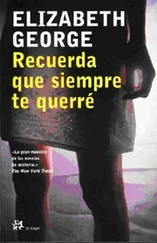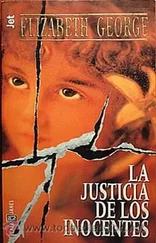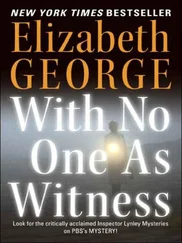Elizabeth George - I, Richard
Здесь есть возможность читать онлайн «Elizabeth George - I, Richard» весь текст электронной книги совершенно бесплатно (целиком полную версию без сокращений). В некоторых случаях можно слушать аудио, скачать через торрент в формате fb2 и присутствует краткое содержание. Жанр: Детектив, на английском языке. Описание произведения, (предисловие) а так же отзывы посетителей доступны на портале библиотеки ЛибКат.
- Название:I, Richard
- Автор:
- Жанр:
- Год:неизвестен
- ISBN:нет данных
- Рейтинг книги:3 / 5. Голосов: 1
-
Избранное:Добавить в избранное
- Отзывы:
-
Ваша оценка:
- 60
- 1
- 2
- 3
- 4
- 5
I, Richard: краткое содержание, описание и аннотация
Предлагаем к чтению аннотацию, описание, краткое содержание или предисловие (зависит от того, что написал сам автор книги «I, Richard»). Если вы не нашли необходимую информацию о книге — напишите в комментариях, мы постараемся отыскать её.
This volume contains three revised versions of Elizabeth George's short stories which were originally published under the title 'The Evidence Exposed'. Here there are also two new stories and an introduction by the author to all five stories of human weakness.
I, Richard — читать онлайн бесплатно полную книгу (весь текст) целиком
Ниже представлен текст книги, разбитый по страницам. Система сохранения места последней прочитанной страницы, позволяет с удобством читать онлайн бесплатно книгу «I, Richard», без необходимости каждый раз заново искать на чём Вы остановились. Поставьте закладку, и сможете в любой момент перейти на страницу, на которой закончили чтение.
Интервал:
Закладка:
What had Eric thought? she wondered. There he was at forty-two. Had he thought, This is it, this is all there is to my life unless I take this one chance to change it all, to have more, to be more, to ride the wave of opportunity that I see rising in front of me and to discover upon what shore that wave will deposit me? If I only take a risk, that's all, one little risk. And really, not much of a risk at all if I play it right and figure the angles: Involve Sharon Pasternak in scoring the virus so if anyone's caught smuggling it out of Biosyn, it'll be Sharon and not me. Play the part of whistle-blower so Sharon will think I've got a selfless goal in mind. Make contact with an interested party but make sure I set the whole deal up so that there's a down payment first, some lag time second to make my plans to escape should my contact try to eliminate me, and then a second meeting to hand over the Exantrum followed by a hasty exit and a flight to…where? Tahiti, Belize, south of France, Greece. It didn't matter. What mattered was that “the rest of my life” would have new meaning to Eric, more meaning than a Harley-Davidson motorcycle and a tattoo on his arm had been able to give him.
“Eric, Eric,” Charlie whispered. Where, when, and why had he gone so wrong?
She didn't know. She didn't know him. She wasn't sure if she even knew herself.
She left the chapel and made her way back to her car in the city parking structure next to the train station. She climbed inside, feeling weary now, feeling as if the virus inside her were a presence she could actually sense in her veins. And it was there. She knew that without checking into a hospital or traveling out to Biosyn to offer herself to Dr. Cabot as proof that his weapon of war was as efficacious as he had hoped.
Eric had known she was going to die. He'd known how the virus would work. He'd known there was no cure for what was going to attack her, so he'd taken himself away from having to face what evil he'd brought down upon them both.
What's to do? she asked herself. But she knew the answer. Write it all out clearly so that no one would take any risks with her body afterwards. And then do as Eric had done but for an entirely different set of reasons. It wasn't the noble solution although it might be seen as such. It was the only solution. She still had the gun. It would create a mess and a mess was dangerous to other people, but the note she would write-and would post on the doorway so no one could miss it before they entered the room-would explain the situation.
Odd, she thought. She wasn't angry. She wasn't afraid. She wasn't anything. Perhaps that was good.
On the freeway, she drove with more care than usual. Every car that hurtled by her was an obstacle that she had to avoid at any cost. It was growing dark and she was having trouble seeing through the glare of oncoming headlights, but she made it home without incident and she parked in the driveway and felt a heaviness come over her, knowing what deed faced her when she got inside.
More than anything she just wanted to sleep. But there wasn't time for that. If she wasted eight hours, that would be a third of a day which the virus would have to work in her body. Who knew what condition she would be in tomorrow if she gave in to exhaustion today.
She got out of the car. She stumbled up the walk. The porch light wasn't on, so she didn't see the form emerge from the shadows till she was upon it. And then she saw a faint glimmer of the streetlight shining on something metallic that he held. A gun, a knife? She couldn't tell.
He said, “Mrs. Lawton, you have something that belongs to me, I think,” and his accent was as dusky as his complexion and his tone was as black as his hooded eyes.
She had no fear of him. What was there to fear? He could do no more to her than Exantrum was already doing.
She said, “Yes, I have it. But not in the form you were hoping for. Come inside, Mr…?”
“Names do not matter. I want what I'm owed.”
“Yes. I know you do. So come inside, Mr. Names Do Not Matter. I'm only too happy to give it to you.”
She'd have to write the letter first, she thought. But something told her Mr. Names Do Not Matter was desperate enough to be willing to give her the time that writing the letter required.
Introduction to I, Richard
I first developed an affinity for Richard III, England's most controversial king, when I was a college student taking my first Shakespeare course. In it, we read Richard III -interestingly titled The Tragedy of King Richard III -and through this process, I came into contact with a fascinating group of historical figures who have never been far from my imagination since those autumn mornings in 1968 when we as a class discussed them.
I watched my first production of the play at the Los Gatos Shakespeare Festival a short time thereafter, but it wasn't until I read Josephine Tey's famous novel The Daughter of Time that I began to see King Richard in a light other than that in which Shakespeare's famous play bathed him. After that, I became more intrigued with this much maligned king and more reading followed: Richard III, The Road to Bosworth Field; The Year of Three Kings 1483; The Mystery of the Princes; Richard III, England's Black Legend; The Deceivers; and Royal Blood became a permanent part of my library. And when I created the continuing characters for my crime novels, I decided to make one of them a Ricardian Apologist, the better to have opportunities to take potshots at the man I eventually came to believe was the real black heart at the heart of what happened in 1485: Henry Tudor, Earl of Richmond, later Henry VII.
All along, I wanted to write my own story of what might have happened to the Princes in the Tower, a story that would exonerate Richard and put blame where it rightfully belonged. But the problem was that everyone I read had a different take on who the real culprit was. Some thought it likely that Henry Tudor had had the boys put to death after ascending the throne himself. Others thought the Duke of Buckingham was responsible, seeking to grease his own way to accession. Still others saw the involvement of the Stanleys, of the Bishop of Ely, of Margaret Beaufort. Some claimed the disappearance and death of the boys a conspiracy. Others declared it the work of a single hand. And some remained convinced that the deed was perpetrated by the man upon whom blame had been cast for five hundred years: that bunch-backed toad himself, Richard, Duke of Gloucester, later Richard III.
I knew that I wanted neither to write a historical novel nor to change my career and become a medieval historian. But I did want to write a story about people who were, like me, interested in that period of time, and I wanted to call it “I, Richard,” taking my title from the manner in which documents began that were written by the reigning monarchs of the time.
The challenge for me was to write a story in the present time that dealt with another story five hundred years old. I didn't want to approach it as Tey had done, using a character in a hospital bed who is distracted from his condition through the means of being given a mystery to solve. At the same time, I did want to create a story in which something existed-something fictional, of course-that proved irrefutably that Richard was guiltless of the death of his nephews.
My first task was to decide what that something was.
My second task was to decide what kind of modern-day story could embrace that something.
I approached the plot the way I approach every plot: I decided to go to the location in which I'd decided to set my tale. So in a frigid February, I trekked up to Market Bosworth in the company of a girlfriend from Sweden. Together we walked the perimeter of the battle site, Bosworth Field, where Richard III died as a result of treachery, betrayal, and greed.
Читать дальшеИнтервал:
Закладка:
Похожие книги на «I, Richard»
Представляем Вашему вниманию похожие книги на «I, Richard» списком для выбора. Мы отобрали схожую по названию и смыслу литературу в надежде предоставить читателям больше вариантов отыскать новые, интересные, ещё непрочитанные произведения.
Обсуждение, отзывы о книге «I, Richard» и просто собственные мнения читателей. Оставьте ваши комментарии, напишите, что Вы думаете о произведении, его смысле или главных героях. Укажите что конкретно понравилось, а что нет, и почему Вы так считаете.












